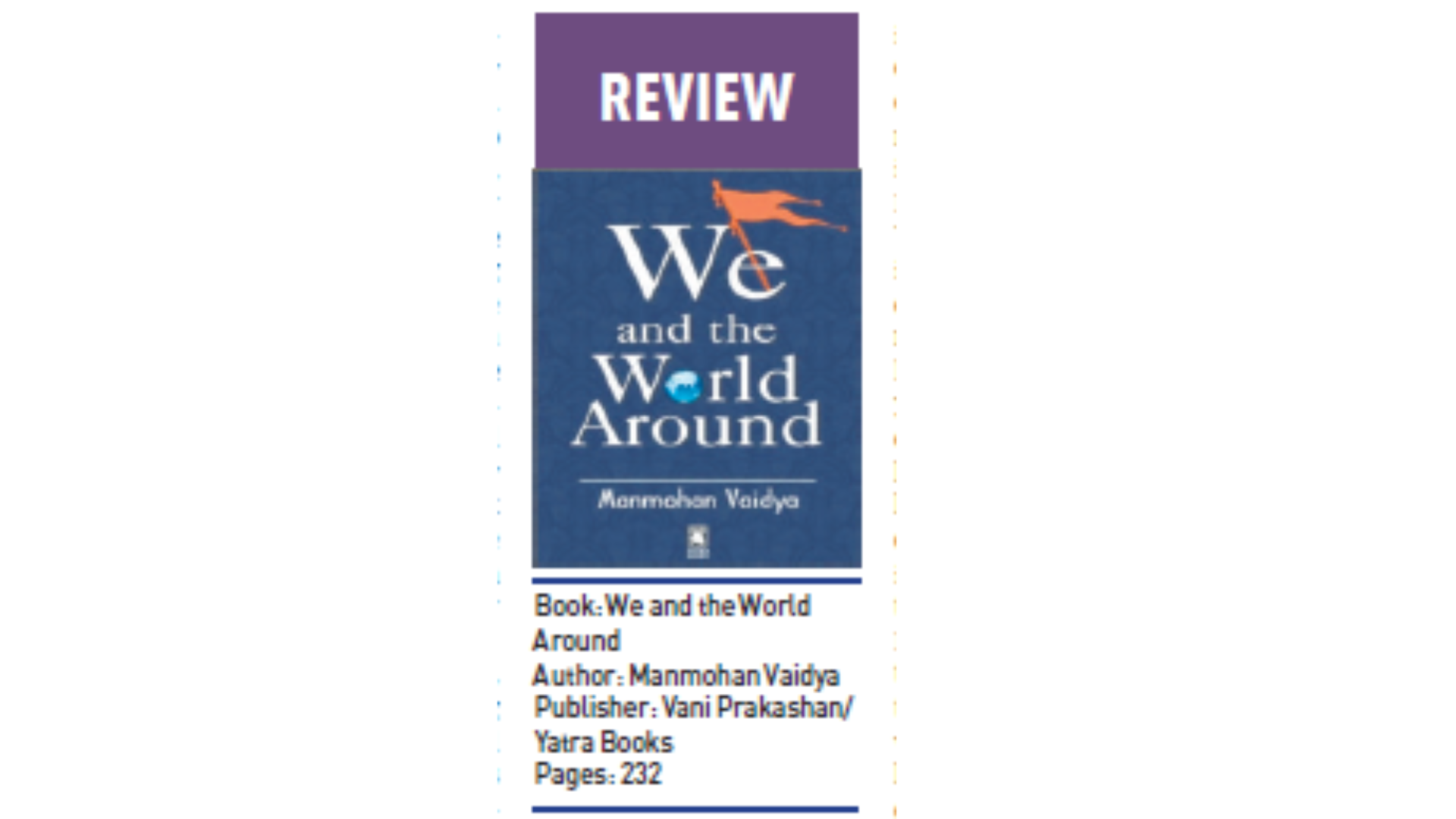Manmohan Vaidya, joint general secretary of the Rashtriya Swayamsevak Sangh (RSS), is known for carrying an attitude on sleeves. He prefers to call his nation Bharat and not India, basking in India’s spiritual democracy, an issue he has raised time and again in many of his talks and articles.
A compilation of his essays has filled a book, “We and the World Around”, that has hit the stands from Yatra Books, a subsidiary of Vani Prakashan. Vaidya has done some hard talk and solidly backed each of his theories to silence critics. Vaidya has often reiterated that India’s identity, known as Hindutva in the world, is actually the Hinduness of the Indian Constitution. Vaidya has, time and again, said it is wrong to call it Hinduism in English.
It should be called Hinduness. His ideas are backed up by RSS supremo Dr Mohan Bhagwat, who has complimented Vaidya in the foreword to the book, especially for Vaidya’s deep research in understanding complex subjects and his excellent refutation of misinformation related to the RSS.
“With the everexpanding ambit of Sangh activities, more and more people have a first-hand experience of the reality, hence spreading misleading messages is no longer as easy,” writes Dr Bhagwat. The book breaks many stereotypes that the Congress, the Left, the Trinamool Congress and other opposition parties use, to paint RSS as a radical organisation. The book digs into attempts to question the RSS about its involvement in the Freedom Movement, to which Vaidya has—very eloquently—explained in one of the chapters, “RSS and the Freedom Movement”.
Vaidya details why selective history offered by Congress historians created wrong myths around issues like Satyagraha, making it a total domain of Mahatma Gandhi and his movement of 1942. “To crown a particular movement or a party as the sole benefactor of the entire freedom struggle is to play with history and an outright insult to the efforts of all others who attained martyrdom to free our motherland,” writes Vaidya, explaining the role of Dr Keshav Balaram Hedgewar.
A staunch nationalist, who grew up to form the RSS, he had once thrown away sweets in school because it was distributed among students to celebrate the diamond jubilee of Queen Victoria’s coronation. One needs to remember Hedgewar was only eight-year-old then. That’s nationalism for Vaidya, and he feels sad that such incidents rarely make it to history books in India and that such incidents now need to be included.
Throughout his articles, Vaidya says the meaning of the word rashtra should be understood correctly as Bharat is neither nationalist nor rashtrawadi but Rashtriya. He says religion should not be regarded as Dharma because Dharma is entirely different and everyone has the freedom to choose upasana (forms of worship).
I remembered once Vaidya had said during a speech: “In Bharat, religion is as personal as one’s toothbrush.” Vaidya had taken a leaf out of Hindutva guru Dattopant Thengadi. I liked the chapter on Gandhiji and Sangh where Vaidya explains in detail the relationship between the two and why, till date, many feel Gandhi and the RSS were at loggerheads with each other.
They were not, argues Vaidya, writing in the book with as much clarity: “When it comes to RSS’ relationship with Gandhiji, people often make presumptions without the requisite examination of facts. The so-called scholars rarely attempt a holistic study of the subject before writing their commentary. More often than not their study is picky—drawing from material authored with a specific ideological perspective. The fact of the matter is that in most cases these thoughts are far from the truth.”
Vaidya knows he represents an ideological organisation whose fortunes have ebbed and flowed for decades with the influence of nationalists in India. Today, it is a force to reckon with in India’s political firmament. Vaidya, through his articles, is cleaning what the RSS calls the stables of misinformation spread by rival political parties.
In an election year, the book assumes relevance for the RSS, which has thrown its weight behind Narendra Modi, India’s two-term Prime Minister, who has been active in the group since childhood. I was drawn to the chapter on “Bharat and Hindutva: Eternal and Intrinsic” where Vaidya writes why he feels it is imperative to expose the conspiracy to divide and confuse, and to establish the eternal philosophy of Hindutva, by dedicated action and practice.
This will result in the unfolding of Bharat’s identity known to the world for centuries, and Bharat’s purusharth will manifest in every sphere of society and public life.” Vaidya makes it clear through his writings that political churning is significant for Indians but not of utmost importance. What the RSS believes is that Indians are the most advanced race in the entire world and Indians have the ability to convert the whole world into the Aryan race. As a result, the RSS firmly believes that Indian culture is the world’s best civilization. Vaidya’s articles are thought-provoking.
The RSS leader wants to break some of the stereotypes and ambiguity that has long surrounded the RSS, founded in 1925 by Hedgewar, who had split from the Indian National Congress. Vaidya wants to counter claims by a handful of India’s political parties which say the Sangh fuels religious conflict.
The RSS, often described as BJP’s ideological fountainhead, has provided many of the same electoral advantages for the BJP as megachurches in the US heartland do for candidates: a highly disciplined and structured canvassing force, and village-level networks of contacts. Vaidya’s articles show RSS’ biggest theme is the politics of development, something which everyone in India must understand.
Vaidya wants his rivals to know that it’s not an easy thing to understand RSS without being a part of it. He feels there is no other social organisation in the world that can be compared to Rashtriya Swayamsevak Sangh. And he expects the organisation’s membership to surge in the coming years. For him, Indian society is with the Sangh.

